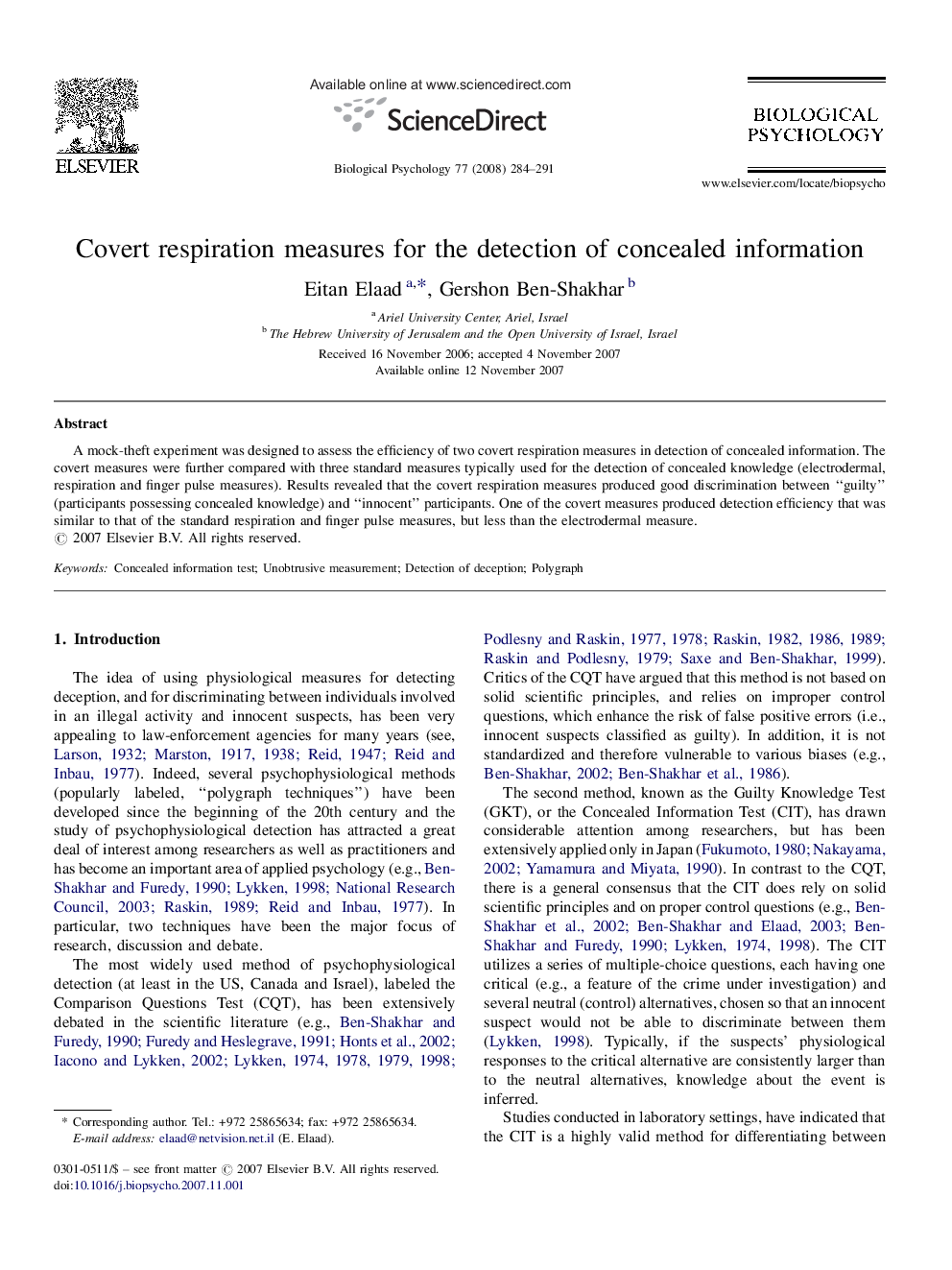| Article ID | Journal | Published Year | Pages | File Type |
|---|---|---|---|---|
| 921590 | Biological Psychology | 2008 | 8 Pages |
Abstract
A mock-theft experiment was designed to assess the efficiency of two covert respiration measures in detection of concealed information. The covert measures were further compared with three standard measures typically used for the detection of concealed knowledge (electrodermal, respiration and finger pulse measures). Results revealed that the covert respiration measures produced good discrimination between “guilty” (participants possessing concealed knowledge) and “innocent” participants. One of the covert measures produced detection efficiency that was similar to that of the standard respiration and finger pulse measures, but less than the electrodermal measure.
Related Topics
Life Sciences
Neuroscience
Behavioral Neuroscience
Authors
Eitan Elaad, Gershon Ben-Shakhar,
